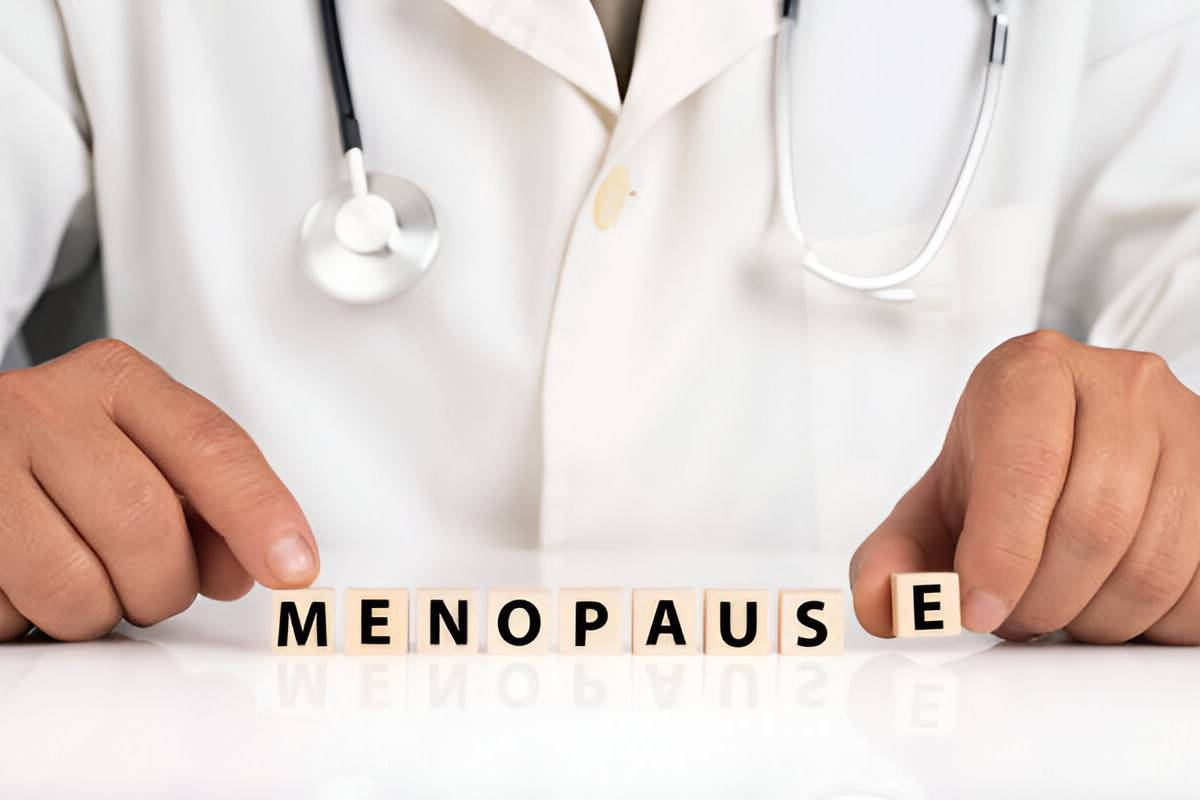Menopause symptoms can be frustrating. First, there are the night sweats and irregular periods, then the general feeling of being on a roller coaster. Then, the realization that you don’t even need to, because it’s already starting to fall out. Between menopause and perimenopause, symptoms can last up to a decade or more for some people. Here’s how to cope with some of the most difficult, disruptive symptoms — and when to ask for outside help.
Table of Contents
Vaginal Dryness
Vaginal dryness can really put a damper on your love life. Actually, the opposite of damp, come to think of it. Decreasing estrogen levels can cause your natural moisture to decrease, and vaginal tissue to become thinner and more fragile. A specially formulated vaginal moisturizer or over-the-counter lubricant can ease discomfort and keep things a little smoother.
Medical treatment for vaginal dryness usually consists of some type of vaginal estrogen therapy. There are creams, tablets, capsules, and rings you can insert into the vagina to help replace lost tissue. Another option is a vaginal suppository containing a medication that acts like estrogen, but isn’t. If you prefer not to insert medication into the vagina, there’s also a once-daily oral medication that treats both vaginal dryness and painful intercourse.
Low Libido
Vaginal dryness and discomfort aren’t the only symptoms that can reduce your interest in sex. Many women lose their interest in sexual activity during menopause, or no longer feel pleasure during sex. The first line of treatment is usually lifestyle related: exercise, reducing stress, talking with your partner, and trying new things. A sex therapist or counselor can help introduce you to reading materials, exercises, and techniques to boost your interest in intimacy.
Hot Flashes
A hot flash traps you, suddenly, in a wave of intense heat, which can last up to a full five minutes. Your skin becomes flushed and clammy, you sweat, and you might even soak through clothes. When they happen at night, they’re called night sweats, and they can ruin a good night’s sleep. Some women even experience anxiety attacks with hot flashes. They can also cause heart palpitations, a fast heartbeat, and chills.
Hot flashes are typically treated with hormone replacement therapy, including estrogen and/or progestin. Newer medications, called selective estrogen receptor modulators (SERMs) can also provide relief. Certain bladder medications and a number of SSRIs designed to treat mental health conditions can also reduce the intensity and frequency of hot flashes. A newer medication, the first hot flash medication with no hormones, works by altering receptors in your brain.
Sleep Disturbances
It makes sense that, if your body is suddenly burning up, you’d wake up in the middle of the night. However, research has shown that many women actually wake up just before the symptoms of the hot flash occur. The current understanding is that hot flashes have something to do with changes in brain chemistry related to declining estrogen. They’ve been associated with glucose deficiencies, luteinizing hormones, certain proteins, and symptoms of vasoconstriction.
Hot flashes aren’t the only reason it’s hard to get good quality sleep during the perimenopause and menopause. Estrogen and progesterone loss may be linked to sleep apnea, which can repeatedly disrupt sleep throughout the night. Depression and anxiety associated with menopause can also lead to poor sleep. Exercise has been shown to help with sleep quality. You can also talk to your doctor about SSRIs, hormone replacement therapy, or the occasional use of over-the-counter sleep aids.
Mood Changes
Speaking of depression and anxiety, hormonal changes during menopause also cause serotonin to drop. Many people experience higher levels of anxiety, sadness, and irritability. In some women, menopause can cause severe mood swings, or even trigger depressive episodes. If you’ve struggled with mental health issues like major depression in the past, you’re more likely to experience them during menopause.
Mild mental health issues in depression are typically treated with hormone replacement therapy first. For those who can’t take hormonal medications, or can’t stand the side effects, SSRIs and other mental health medications are an option. These medications work best in conjunction with counseling-based therapies, like cognitive behavioral therapy. Lifestyle changes like exercising and eating a nutritious diet can also make a significant difference in symptoms.
The Road Ahead
Menopause is a challenging time, and it can often feel like you’re going through it all alone. It’s rarely talked about in the media, and some women find symptoms like hot flashes or vaginal dryness too awkward to discuss with friends. The truth is, however, that menopause is a normal part of life that nearly every woman goes through. It’s OK to reach out to friends, loved ones, and any other trusted people in your life for help and for comfort.
In addition to seeking plenty of help from others, make sure you also take time for self care. Engage in activities you love, find time for rest and relaxation, and do what you can to cut stress out of your life. Meditation, acupuncture, deep breathing, herbal teas, and foods with natural phytoestrogens may also help you manage menopause naturally. When all else fails, though, try not to feel embarrassed about standing in front of an open freezer for as long as you need.

